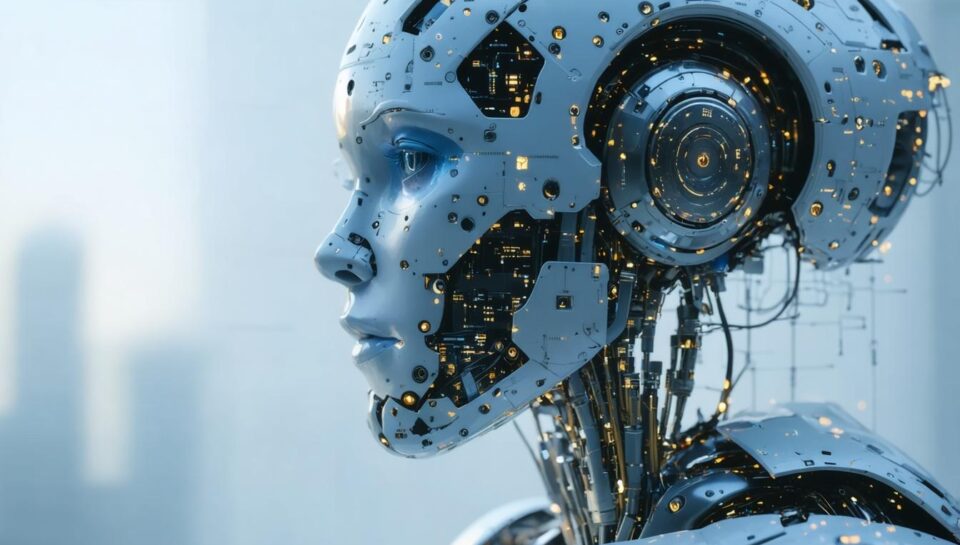
Artificial Intelligence: Definition, Impact, and Future Trends
Artificial intelligence is revolutionizing our world, influencing diverse sectors such as healthcare, finance, and entertainment. This transformative technology is not just a concept but a tangible force, redefining how we interact with machines and each other. The artificial intelligence definition encompasses the simulation of human intelligence processes by computer systems, enabling them to learn, reason, and adapt. As interest grows, many seek knowledge through an artificial intelligence course to understand its applications, from AI apps that enhance daily tasks to groundbreaking innovations in AI-driven healthcare. With ongoing developments and news in the field, it’s clear that artificial intelligence is more than a trend; it’s a pivotal element of our future.
The field of machine intelligence, commonly known as artificial intelligence, continues to capture the imagination of individuals and industries alike. This advanced technology, which mimics human cognitive functions, is now fundamental in various applications, from healthcare solutions to entertainment systems. Understanding the meaning of machine intelligence is vital, as it encompasses a range of processes including learning and decision-making. Many are turning to courses in machine learning and technology to gain insights into its widespread implications and ethical considerations. As we delve deeper into this fascinating domain, we uncover the significant role that machine intelligence plays in shaping our modern society.
Understanding the Basics of Artificial Intelligence
Artificial intelligence (AI) is a rapidly evolving field that fundamentally alters how we understand technology and its interaction with human life. At its core, AI refers to the simulation of human intelligence processes by machines, particularly computer systems. This includes a range of cognitive tasks such as learning, reasoning, and self-correction. The definition of artificial intelligence encompasses not just simple automation but complex systems capable of mimicking human thought processes. As we delve deeper into AI’s meaning, it becomes apparent that it is not merely about making machines smarter; it’s about creating systems that can adapt and evolve, much like humans do.
As technology progresses, the applications of artificial intelligence continue to expand into various sectors. From AI apps that streamline daily tasks to advanced algorithms that drive decision-making in businesses, the breadth of AI’s impact is immense. The rise of machine learning and neural networks has enabled AI to tackle challenges previously thought insurmountable, such as predicting consumer behavior or diagnosing medical conditions. This transformative technology is reshaping industries and prompting a reevaluation of what it means to be intelligent.
Frequently Asked Questions
What is the definition of artificial intelligence?
Artificial intelligence (AI) refers to the simulation of human intelligence processes by machines, especially computer systems. These processes include learning from data (known as machine learning), reasoning, and self-correction. Understanding the definition of artificial intelligence is essential as it encompasses various technologies that mimic human cognitive functions.
How is artificial intelligence used in healthcare?
Artificial intelligence is revolutionizing healthcare by assisting in diagnosing diseases, personalizing treatment plans, and predicting health outcomes. AI applications can analyze vast amounts of medical data quickly, which is critical for timely decision-making. For example, IBM’s Watson uses artificial intelligence to interpret both structured and unstructured data, enhancing clinical decision-making.
What are some popular artificial intelligence courses available?
There are numerous artificial intelligence courses available online, catering to different skill levels. Platforms like Coursera and edX offer courses ranging from introductory to specialized topics in AI, including machine learning and deep learning. These courses provide valuable insights into the definition, applications, and advancements in artificial intelligence, making them accessible to anyone interested in the field.
| Topic | Key Points |
|---|---|
| Introduction | AI is transforming various sectors, including healthcare and entertainment. |
| Definition of AI | Simulation of human intelligence processes by machines, including learning, reasoning, and self-correction. |
| AI in Movies | Films like ‘Ex Machina’ explore ethical and futuristic aspects of AI. |
| AI Courses | Various institutions offer courses on AI, including introductory and specialized topics. |
| AI in Healthcare | AI aids in diagnosing diseases and personalizing treatment plans, exemplified by IBM’s Watson. |
| Future Developments | New research and breakthroughs in AI are occurring regularly. |
| Ethical Implications | Discussions on regulations like the AI and data act emphasize responsible development. |
Summary
Artificial intelligence is revolutionizing our world by integrating advanced technologies into various sectors. This transformative technology not only enhances efficiency but also raises important ethical questions that society must address. As AI continues to evolve, understanding its vast applications—from healthcare innovations to its portrayal in popular culture—becomes essential for navigating the future. The continuous advancements in artificial intelligence promise to reshape our interactions with technology, making it crucial for individuals and institutions alike to stay informed and engaged with this rapidly developing field.

